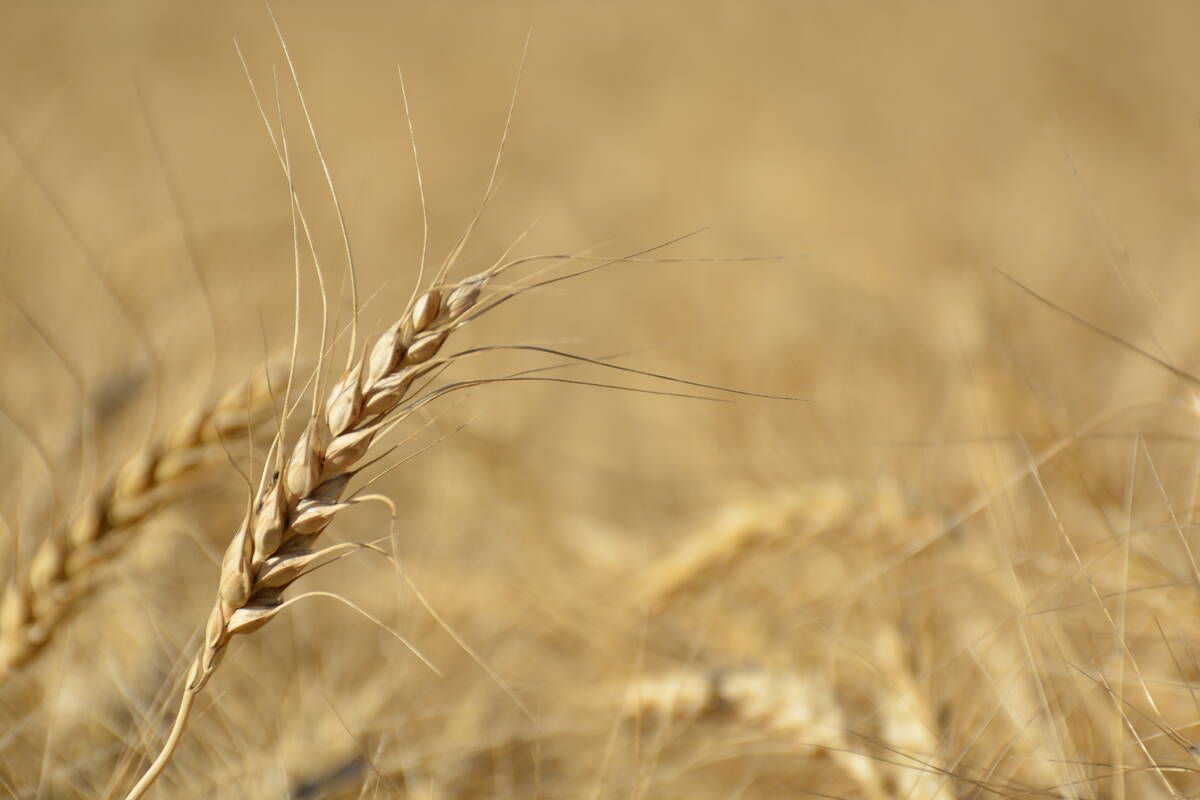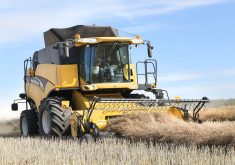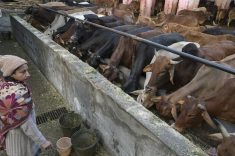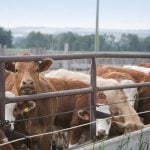Beef trade to Mexico has been disrupted after loonie-sized bone chips were found in boneless beef shipments from Canada’s two main meat processing plants.
Cargill’s plant at High River, Alta., and Tyson’s Lakeside plant in Brooks, Alta., were both delisted at times this year after the bone chips were discovered by Mexican border inspectors, meaning the plants couldn’t ship to Mexico.
“For this product arriving at the U.S.-Mexico border, at some of the border crossings, we’ve seen a problem in that inspectors are looking diligently for the presence of small bone chips,” said Ted Haney, president of the Canadian Beef Export Federation.
Read Also

USDA’s August corn yield estimates are bearish
The yield estimates for wheat and soybeans were neutral to bullish, but these were largely a sideshow when compared with corn.
Before BSE was discovered in three Canadian cattle, traces of bone chips would simply be deemed a minor non-compliance issue. But now, when only boneless beef from cattle younger than 30 months of age is allowed into Mexico, discovering bone chips is a major fault, said Haney.
Rob Meijer, director of public affairs with Cargill, said its High River plant was delisted after small bone fragments were found in beef shipments at the beginning of May.
“They’ve instituted a very hard line around zero tolerance in terms of any type of fragment or trace of anything that might resemble a bone.”
Meijer said Cargill is working with Canadian Food Inspection Agency staff and Mexican officials to try to get the plant relisted and resume exports.
“It’s important to us because we’ve got a closed border to live animals. We’re only allowed to ship boneless product outside of Canada. These markets are critical,” said Meijer.
Cargill staff had to find new markets for the beef in transit to Mexico from Canada.
“Right now our team is trying to figure out what to do with that product. … We have limited choices where we do business. That’s what complicates it. In the old days I would think if there was a bump in the road, we could make adjustments.”
Tyson’s Lakeside plant was delisted for about two months earlier this year, but has since been relisted, allowing trade to resume.
“We’ve been working through CFIA to address Mexican trade concerns,” said Gary Mickelson, manager of communications with Tyson in Springdale, Arkansas.
“Delisting does cause some disruption in product shipment. Products that would otherwise go to Mexico subsequently have to be redirected to other customers.”
The bone chips are often from the chuck or sirloin area and may only be the size of a loonie or the cartilage cap nicked off the bone, said Haney.
“In some cases the plants, in their corrective action plans, have said they will not export these cuts because of the probability of having these pieces of small bone in them,” said Haney.
Since BSE, Mexico has become an important buyer of Canadian beef and any disruption in the trade is a huge concern, said Haney.
“In essence, a third of our available capacity was out of Mexico for most of two months.”
In 2004, Canada exported a record 87,067 tonnes of beef to Mexico, second only to the 336,714 tonnes that went to the United States.
Bertand Arnaud, chief of CFIA’s meat export program, said once a plant is delisted, it must review its procedures.
“They have to make an action plan to correct what went wrong,” said Arnaud, who added often it’s simply making sure employees understand no bone is allowed into the product.
“They will have to make sure their employees are informed of that. Even the smallest portion is not acceptable. It’s a question of training those employees,” he said.
Haney said in the short term, the export federation is working with the plants and government officials to help get the plant relisted. In the medium term, Canada, the U.S. and Mexico are all working on recognizing the unnecessary rigidity of small bone chips in boneless beef.
“They do not represent a health risk in any way,” he said.
In the long term, the best solution would be to reopen the border to all types of beef, he said.
“The best way to deal with it long term is simply to allow bone-in beef to trade to Mexico.”
















